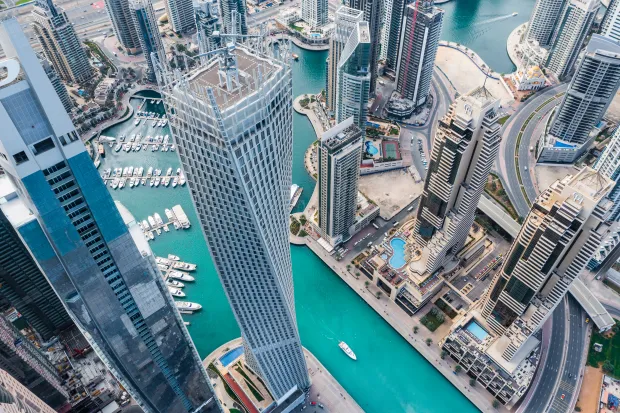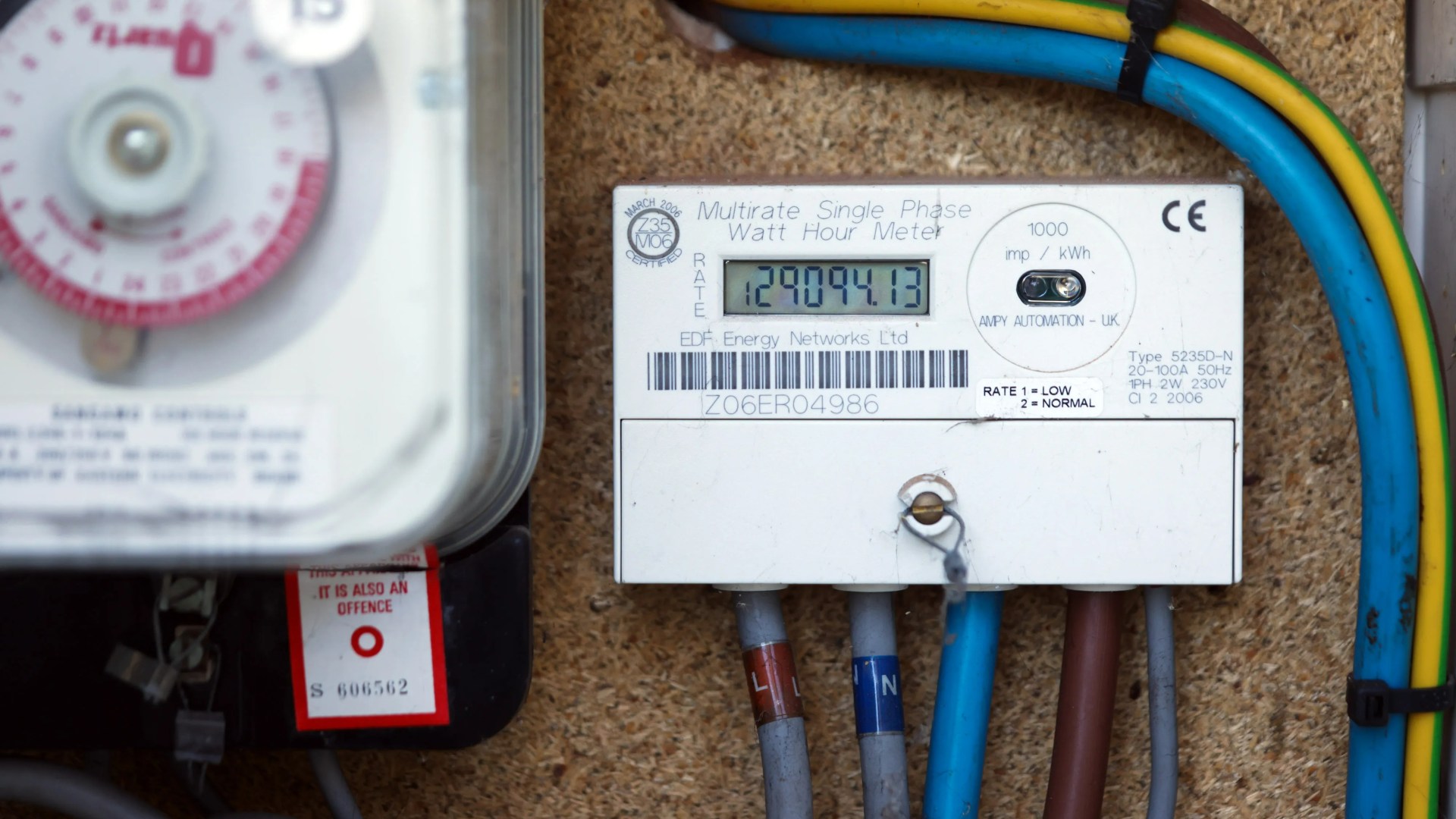Every day since fleeing her home in Dahiyeh under a hail of Israeli missiles last Friday, Dareen Tabbara has risked coming back to feed the 25 cats she was forced to leave behind.
The cats are crammed into the small pet shop she opened just four years ago with all her savings, some still shivering from the relentless sound of air strikes.
There are possibly more cats than people left in Dahiyeh now. In just two weeks, Israel has dramatically escalated its campaign against Hizbollah, launching regular devastating strikes in the densely populated area where the Iran-backed militant group has a controlling presence but where – up until the past few days – hundreds of thousands of civilians lived. Most have fled.
“There’s not another soul around,” said Tabbara, her tattooed hands gently clutching the cats as she stood in the doorway of her once-meticulous shop, now a dust-covered mess of litter boxes and cat food. “I have to come and check in on them. They’re just as scared as we are.”

Beirut’s southern suburbs, which include Dahiyeh, are often characterised as a “Hizbollah stronghold”, a term that belies the area’s history and diverse social fabric. While the predominantly Shia area is home to many of the militant group’s members, supporters and offices — including those of its social welfare and civil institutions — it is also home to those who have no love for them either.
On a visit to Dahiyeh this week organised by Hizbollah, which typically tightly controls journalists’ movements in the area, the Financial Times saw a community changed: once bustling with the hum of traffic, its shops and cafés perennially full, Dahiyeh’s warren of side streets are now deserted.
It was clear many residents had left in a hurry: newly washed laundry hung across balconies while produce rotted outside corner stores. Dahiyeh’s streets were littered with shattered glass, corrugated iron and debris, the Lebanese army and Hizbollah checkpoints abandoned. Treadmills hung out of pane glass windows of a gym, recently blown out by the impact of a nearby strike.
“I left everything when they started bombing, so I came back to finish packing up,” said one man who stood alone on his street, stacking boxes of condensed milk, instant coffee and dried goods to take with him. “I don’t know when I’ll see our homes again.”
The area has been a particular focus of Israel’s relentless air strikes in the past two weeks: an estimated 380 buildings have been damaged or destroyed since September 20, according to satellite-based radar measurements.
Over the past week, Israel’s army has issued 15 evacuation orders in Beirut — akin to those issued in Gaza, ahead of major offensives — telling residents to leave the 500-metre radius of places they claim are adjacent to Hizbollah facilities.
The first of these, last Friday, sent residents fleeing in panic as Israeli bombs flattened at least six residential buildings and killed Hizbollah leader Hassan Nasrallah. Last night it carried out one of its heaviest bombardments so far, targeting Nasrallah’s heir apparent Hashem Safieddine.
Madi Ghosn, who was at home close to where the 2,000lb bombs landed, remembers a thud so intense that he initially thought the strikes had hit his building. He scrambled to his car, which he had already filled with items for his family “just in case”.
“As soon as they hit on Friday night, I turned on the car and we left immediately,” Ghosn said, who had come to check on his home and pick up toys for his children. With nowhere else to go, Ghosn moved his family to a shelter nearer the outskirts of Dahiyeh that he considers “safer”.
The IDF said it is targeting missile depots that Hizbollah, which started firing rockets into Israel after Hamas’s October 7 attack last year, hides among civilians. Hizbollah denies this, as do residents of the area the FT spoke to on Wednesday. To prove its point, the militant group took dozens of journalists on a tour of four areas that had been hit by Israeli strikes.


All of the targeted buildings the FT saw were in residential neighbourhoods, some on commercial streets. One was an office building of a Hizbollah-allied TV station Al Sirat, which Israel said was being used to store weapons — a claim Hizbollah denies.
Enormous craters were filled with the debris of apartment blocks decimated in recent strikes. One block was still on fire.
“There are no missiles here, there isn’t anything here,” Ghosn said, adding that he doubted that Hizbollah would risk killing its own people by storing weapons inside apartment complexes. “We’re civilians, we have nothing to do with anything. If there are missiles, come and show us where they are.”

Speaking near one of the mounds of rubble, Hizbollah’s media chief Mohammad Afif said the war with Israel would be fought “in rounds”. “If you have defeated us in this round, it is only the first,” he said to cheers.
Around him, party operatives and supporters broke out into cries of “Labbayk ya Nasrallah”, a vow of fealty to their martyred leader. Those men are typical of the Hizbollah base that lives and works in Dahiyeh.
But they are not the only demographic. Before Lebanon’s civil war started in 1975, the area — once known for its tree-lined streets and forests — was home to Christians and Muslims, Lebanese as well as Palestinian refugees forced to flee their homes in 1948.
Lebanon’s ex-president Michel Aoun, a Christian who became a political ally of Hizbollah, grew up in Dahiyeh’s Haret Hreik neighbourhood. A church is still standing down the street from where Nasrallah was killed.

After the outbreak of war, Christians began selling up and moving out, replaced by Shia Muslim families fleeing Israel’s occupation in south Lebanon and Christian militias in Beirut.
With them came fledgling Shia militias, including one that grew into Hizbollah. The group eventually established its headquarters in Haret Hreik and became Lebanon’s dominant political and military force.
After large parts of Dahiyeh were destroyed by Israeli bombardment in 1996 and later 2006, residents — most with Hizbollah’s help — were forced to rebuild chaotically, densely packing in more buildings than before. “Every 10 years we have to come and rebuild our homes again,” Ghosn said.
Dahiyeh also became home to thousands of Syrian refugees who moved in after the 2011 civil war and found safety and kinship in the area and its Palestinian refugee camps — even those who come from areas in Syria where Hizbollah would commit atrocities.
Until recently the suburbs continued to reflect the full breadth of Lebanese society, from teenagers flirting on narrow rooftops and families out strolling after Sunday lunches to Palestinian Marxists debating Kafka at their favourite haunts.
This included many, among them Shia, who do not like or agree with Hizbollah’s role in Lebanon even if they have to coexist.
“People don’t have to agree with Hizbollah to live in Dahiyeh; they may just follow certain rules and otherwise live their lives,” Sarah Parkinson, a political scientist at Johns Hopkins University, said. “To freeze it — concretise it as a ‘Hizbollah stronghold’ — erases what is incredibly salient history.”
As Israel continues to hit Dahiyeh, the thousands who fled have started to lose count of the attacks. They simply want to return home.
“We’re risking our lives as much as we can because there’s no alternative,” Tabbara, the pet shop owner, said. “I just want this war to end soon,” she added, showing the tattoo on her wrist with a single English word: “Hope.”
Cartography by Jana Tauschinski









































































































































You must be logged in to post a comment Login